WSJ Ask an Expert: Tips for Expats on Buying Real Estate in Singapore
Submitted by Creveling & Creveling Private Wealth Advisory on February 17th, 2015The Wall Street Journal invited Creveling & Creveling to be part of a panel of experts for personal finance on its WSJ Expat site. The following article originally appeared on the WSJ site and has been shared with permission.
Singapore is a major magnet for expats, so we asked Peggy and Chad Creveling of Asia-based Creveling & Creveling Private Wealth Advisory, to provide guidance to U.S. expats considering buying rather than renting homes in the southeast Asia city-state. Send your expat finance questions to expat@wsj.com. Keep an eye on WSJ Expat to see if your questions — and answers provided by our experts — are published.
Owning a home can make sense for some Singapore-based expats, but before taking the plunge it's wise to carefully consider the costs and benefits of both ownership and renting. On the plus side, owning a home could help you feel more settled. Add to that Singapore's current low borrowing rates, strong property market, and high rental costs, and the decision may seem obvious. Yet before you buy, think carefully. Buying a property can have a major impact on your finances. Here are some considerations:
How long you'll live there: Expats often lead a peripatetic lifestyle, moving at the whim of their employers. The shorter the time frame, the less likely it is that you will recoup the various costs of buying, selling and maintaining a property. If you end up buying near peak prices, which may be the case in Singapore, you'll want to be sure you'll be able to own the property long enough to hold through a correction to sell when prices recover.
Affordability: In Singapore, it's relatively straightforward for a qualified foreign resident to obtain a mortgage for a primary residence, but the down payment and mortgage can eat up a significant part of your liquid net worth and paycheck. As a rule, try to keep housing costs at about a third of your income. Mortgage rates in Singapore are floating, not fixed. With global interest rates at generational lows, mortgage payments may be affordable now, but even a small uptick in rates can have a big impact on your monthly cash flow.
Reason for buying: If you're trying to saving on housing costs, then run the numbers carefully. Remember to compare all the costs of both owning and renting. If you're buying in the hope of making money, consider that you're really making an undiversified, leveraged bet on the Singapore property market with what is probably a significant amount of your liquid net worth and income. In this case, consider your other investment opportunities as well.
Tax implications: If this is your primary residence, you could be entitled to U.S. homeowner tax benefits such as deducting mortgage interest, as long as you itemize and have unexcluded income to deduct against. If you live in your home for two of five years preceding a sale, you can also exclude capital gains up to certain limits on your U.S. taxes. Remember to factor in the impact of foreign currency movements when calculating your gain or loss.
Capital gains: Singapore does not tax capital gains on property, but it does apply several layers of stamp duties on the buyer and seller. The amount of the stamp duty depends on whether you are a Singaporean citizen, permanent resident, foreign owner; whether this is your first or a subsequent property purchase; and whether a Free Trade Agreement applies between Singapore and your country of citizenship. There is also an annual property tax charged progressively as a percentage of the "annual value," which is based on an imputed rental rate. Unlike in the U.S., mortgage interest on a primary residence is not deductible against Singapore tax.
Estate tax: Singapore abolished its estate tax in February 2008. U.S. estate tax would apply for American citizens, however, as would the need to plan for probate in a foreign country.
Illiquidity: Property is illiquid. You may not be able to sell when you want or get the price you want, especially in a down market. Meanwhile, as an expat, you may be relocated at the whim of your employer.
Of course, there are non-financial considerations as well – location, convenience, lifestyle. If you just want the experience of living in your own home in Singapore, have considered the risks and can afford it, then go for it. If you're buying because you think it will save you money or be a great investment, then you need to run the numbers and consider the risks carefully.
About Creveling & Creveling Private Wealth Advisory
Creveling & Creveling is a private wealth advisory firm specializing in helping expatriates living in Thailand and throughout Southeast Asia build and preserve their wealth. The firm is a Registered Investment Adviser with the U.S. SEC and is licensed and regulated by the Thai SEC. Through a unique, integrated consulting approach, Creveling & Creveling is dedicated to helping clients cut through the financial intricacies of expat life, make better decisions with their money, and take the steps necessary to provide a more secure future.
Copyright © 2020 Creveling & Creveling Private Wealth Advisory, All rights reserved. The articles and writings are not recommendations or solicitations, and guest articles express the opinion of the author; which may or may not reflect the views of Creveling & Creveling.

